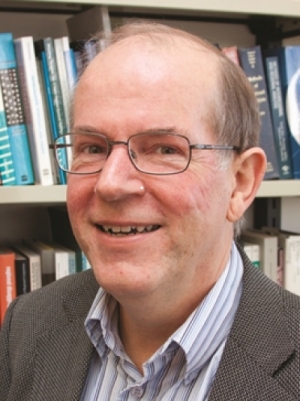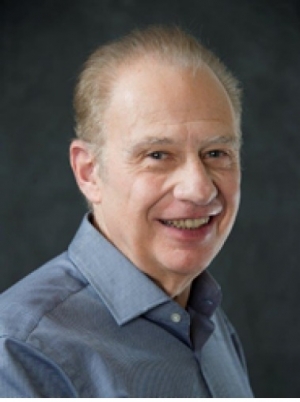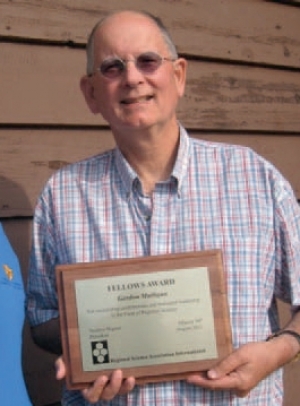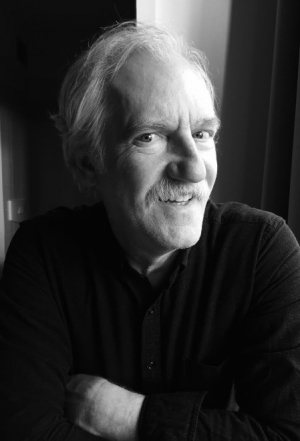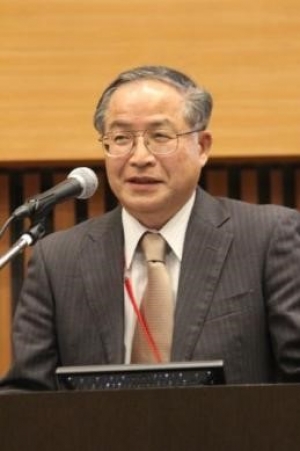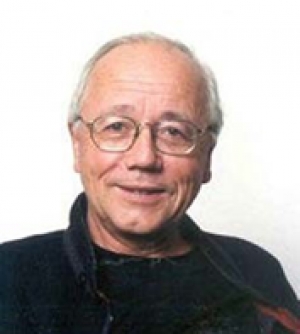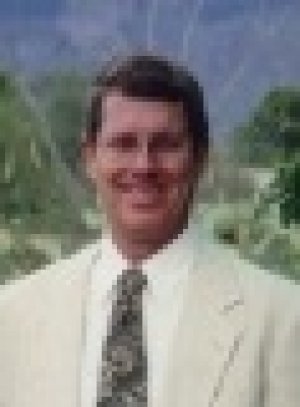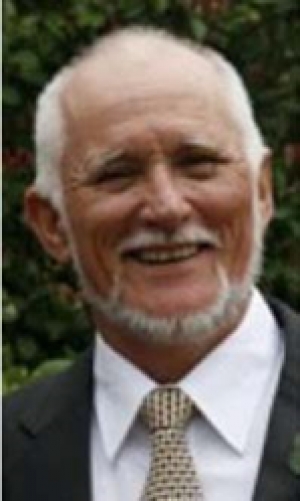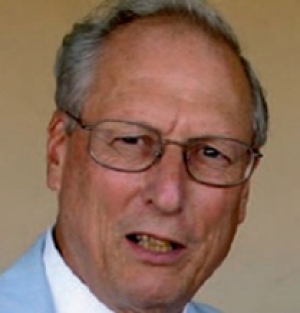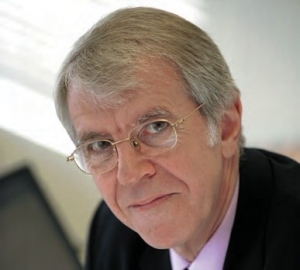Awards
Elisabete Martins
Jacques Poot
How does one become a regional scientist? In my case my high school mathematics teacher in Uithoorn, the Netherlands, recommended that I should study something challenging like econometrics. Not having a strong preference for an alternative discipline, I followed his advice and enrolled in September 1972 in the Interfaculty of Econometrics and Actuarial Sciences at Vrije Universiteit Amsterdam (also referred to as VU University, or Free University Amsterdam). It was a small cohort, as they took in only the 30 best qualified applicants per year. It was called an Interfaculty because students were required to take core courses from the Faculty of Economics and from the Faculty of Science, as well as specialised courses in the Interfaculty itself. Thus, as an undergraduate student I had to struggle with topics like topology, measure theory and abstract algebra. The mathematical models used in undergraduate macroeconomics and microeconomics looked rather simple by comparison.
I started my Masters in Econometrics at VU in January 1975 and had to choose between mathematical economics, econometrics and operations research. A strong interest in public policy led me to mathematical economics, where the work of Nobel Prize winner Jan Tinbergen – who I met when he was visiting VU – still strongly influenced the curriculum. My Masters supervisor Arnold Merkies had previously worked at the Dutch Central Planning Bureau (now called CPB Netherlands Bureau for Economic Policy Analysis) and offered me a research assistant position in 1976 to update and complete a study he had started at CPB on forecasting the long-run economic growth rate in the Netherlands under assumed scenarios of population growth and post-compulsory education enrolments. This introduced me not only to the economic growth theories at the time (and the inadequacy of the exogenous technological change assumption) but also to population projection methodologies and the use of Markov chains to model transitions. A seminar by Henri Theil, at the University of Chicago at the time, on modelling social mobility further inspired me to go in that direction. The Masters thesis was written in Dutch and sadly not subsequently published, but triggered a job as research assistant of the VU professors of economic growth and macroeconomic policy, Steven Huisman and Bernard Compaijen respectively. With them I contributed to a Dutch macroeconomics textbook.
By late 1978 I decided to do a PhD abroad and a pamphlet on the VU noticeboard advertising a new PhD programme at Victoria University of Wellington (VUW) in New Zealand led me to apply. While at the opposite side of the world, New Zealand was not an odd choice for me as several of my relatives migrated there in the 1950s and I had visited them and hence knew the country. Additionally, my parents decided to retire there in the same year. VUW offered me a job as junior lecturer, which was financially more attractive than a scholarship offer I received in Australia. I also met my wife-to-be soon after arriving in Wellington, so that settled the location question.
I decided on a PhD thesis on interregional population mobility, with labour economist Peter Brosnan as chief supervisor. Initially I started applying Markov chain models and could have gone in the direction of Andrei Rogers’ work, but became particularly intrigued by Bill Alonso’s general theory of movements. Formal econometric modelling of this model remained challenging for decades. I did design an estimation method and a New Zealand application, which was published in the Scottish Journal of Political Economy (a journal that had a tradition of publishing about labour markets and migration) in 1986.
My introduction to the regional science network was through taking regional, urban and transportation economics as elective courses during my Masters at VU. That is how I met Peter Nijkamp and the late Piet Rietveld. In early 1980 I received a letter “out of the blue” from Peter Nijkamp, jointly with Wal van Lierop, inviting me to participate in a summer institute in Soesterberg, The Netherlands. There I presented my first regional science paper on analysing intra-urban residential mobility with log-linear models. The discussant was Peter Batey.
Roughly at that time I also joined the Australian and New Zealand section of RSAI, which subsequently awarded me with the 1985 best PhD dissertation medal. Like many others in regional science, I continued to be active in other networks as well, in my case the New Zealand Demographic Society (now Population Association of NZ) and the NZ Association of Economists.
Following completion of my doctorate in early 1984, my family and I went on sabbatical back to VU in Amsterdam and to the Australian National University in Canberra. In Amsterdam, I started my first project with Peter Nijkamp on dynamics of generalised spatial interaction models, subsequently published in 1987 Regional Science and Urban Economics. My first presentation of this paper was at the 1985 PRSCO conference on Molokai, Hawaii, with Walter Isard as the discussant. Walter liked the paper – which was a pure theory one – and told me not to be concerned when some New Zealand colleagues had criticized the paper for having little practical use.
In the second half of the 1980s, I got my first large grant from the NZ government. The aim was to do a scenario-based impact assessment of immigration by means of simulations with a computable general equilibrium (CGE) model. For this, I worked with VUW’s Bryan Philpott, who had developed several CGE models for New Zealand, and his PhD student Ganesh Nana. At that time Australia and New Zealand were well ahead of North America and Europe in doing integrated impact assessment of international migration. Many of the issues that became subsequently core topics of immigration economics (such as the role of international trade, fiscal impacts, housing, technological change and population diversity) were already introduced in our 1988 book International Migration and the New Zealand Economy.
At the same time I continued working with Peter Nijkamp, and also with Jan Rouwendal, on endogenous economic growth in a spatial setting, leading to several articles in Annals of Regional Science and also one in Australian Economic Papers.
In 1994 I was offered an opportunity to spend a few years in Japan at the University of Tsukuba, on the invitation of former RSAI President and 1996 World Congress organiser Hirotada Kohno. During this time in Japan I also worked closely with the more recent RSAI President Yoshiro Higano. While my teaching in Japan introduced me to the challenges of environmental economics and policy, my research remained focussed on the economics of migration and endogenous growth. Upon returning to New Zealand in 1997 (VUW had graciously kept my position open), my VUW colleague Philip Morrison and I organised the December 1997 PRSCO conference in Wellington which attracted 250 participants from throughout the world.
After Peter Nijkamp won the 1996 Spinoza Prize, he used the funds to set up MASTER-point at VU University, a research centre for meta-analysis in spatial, transportation and environmental research and invited me to join MASTER-point as a visiting professor. Raymond Florax was appointed as director. Meta-analysis, the quantitative research synthesis of a body of empirical research findings, had become very popular in other disciplines such as psychology, medicine and education, but had received relatively little attention in economics. This association with MASTER-point during the late 1990s and early 2000s turned out to be a very productive period and led to highly cited publications. One topic was the labour market impacts of immigration, to which Simonetta Longhi, who was doing her PhD at VU at the time, made a major contribution.
In 2004 I took up, upon the invitation of New Zealand’s demographer par excellence, Ian Pool, a personal chair in population economics at the University of Waikato and the Directorship of the Population Studies Centre. We were very fortunate to secure during the following decade some large grants for research on population ageing, immigrant integration and regional population distribution in New Zealand that allowed participation of around 6-10 researchers. After a three year-stint as Director, I was happy to pass on that administrative role to my colleague Richard Bedford, who subsequently transformed PSC into the National Institute of Demographic and Economic Analysis (NIDEA), where I am at present.
As co-Principal Investigator of the 2009-2013 Migrant Diversity and Regional Disparity in Europe (MIDI-REDIE) project and having several other professional roles and projects in Europe as well, I became during the last decade one of the world’s longest distance commuters – spending several months in Europe each year, as well as continuing the New Zealand projects. Given that a lot of my work had been concerned with economic policy analysis, I was very honoured to win the New Zealand Institute of Economic Research (NZIER) Award in 2013, referred to by the NZ public as “Economist of the Year”.
In recent years I have been doing further meta-analyses, including with Henri de Groot and Martijn Smit on agglomeration externalities (with the latest paper recently published in Journal of Economic Surveys) and with former VU PhD student Ceren Ozgen (now at the University of Birmingham) on productivity effects of net migration (in Papers in Regional Science). Work with Ceren also included several projects on trying to find causal evidence of diversity impacts on innovation.
It is clearly impossible to mention all research collaborators around the globe since the turn of the millennium, but I should acknowledge many interesting projects with former Waikato PhD students Bill Cochrane, Matt Roskruge, Valente Matlaba, Steven Bond-Smith and Lynda Sanderson (I should explicitly mention the paper with Lynda and Phil McCann on relationship capital published in Journal of Economic Geography, of which I am particularly fond), with former VU PhD students Masood Gheasi and Guney Celbis; and with former Purdue PhD student Julia Beckhusen. Several of the New Zealand projects are jointly with Senior Fellows Dave Maré and Arthur Grimes at Motu Economic and Public Policy Research, New Zealand’s leading economic think-tank.
The European work on the economics of cultural diversity triggered a 2014-2020 mixed methods project in New Zealand, entitled Capturing the Diversity Dividend of Aotearoa New Zealand (CaDDANZ, pronounced cadence). Research on diversity impacts, immigrant integration and social capital development is likely to remain the main focus of my research in years to come, but new projects on the challenges of New Zealand’s largest city, Auckland, and on the future of smaller urban areas are on the horizon. This, combined with having accepted the Presidency of RSAI over the next two years, implies there is no shortage of interesting and challenging things to do in the years to come.
(Published on RSAI Newsletter 2016 November)
Gerald Carlino
I grew up in Pittsburgh, during its “Smoky City era”, before the Pittsburgh of today, a hub of technology and R&D. As a child, my favorite pastime was attending Pirates games at Forbes Field. My dream was to be a professional baseball player. I could characterize my career in two words: Who knew? Like many Pittsburghers of my day, I started working in “the mill” a few years after high school. After working several years at the United States Steel’s Homestead Works, I realized that I did not want to do this for the rest of my life. As the poet Jack Gilbert, who grew up in Pittsburgh, said, “You can’t work in a steel mill and think small.” So in spite of my lack of academic prerequisites, I decided to quit the mill and go to college. I started at Allegheny County Community College and eventually transferred to the University of Pittsburgh, where I majored in philosophy and economics. In 1972 I entered Pitt’s graduate program in economics. Many prominent regional economists passed through the department, such as Ed Hoover, Ben Chinitz, and Charlie Leven. Urban and regional economics was “in the air” at Pitt. Harry Richardson spent a few years at Pitt while I was a graduate student, and his research and mentoring led me to write my Ph.D. thesis on urban agglomeration economies. Unfortunately, Harry left Pitt before my dissertation was completed, but fortunately one of the best economists I have ever known, Jack Ochs, became my thesis advisor. I was privileged to have the guidance of Harry and Jack and I am deeply indebted to them.
After completing my thesis, I took a job at Florida International University, and after one year I joined the University of Missouri. I spent one year at the Kansas City campus and several years at the St. Louis campus. A paper looking at agglomeration economies in manufacturing activity from my thesis was published in the Journal of Regional Science in 1979, and a book followed. Soon after arriving in St. Louis, I paid a visit to Charlie Leven, who was chairing the Economics Department at Washington University. Charlie had just published a book examining the “turnaround phenomenon” in U.S. population dynamics. In the 1970s, a dramatic reversal of the long-standing tendency for people to concentrate in metropolitan places was observed — rural places gained migrants largely as the result of increased outmigration from metropolitan places. This reversal engendered the “clean break” hypothesis — namely, that the U.S. population trend had undergone a major break with the past. This new trend led to a flurry of academic papers during the 1970s and 1980s. I was surprised that no one had looked at whether the employment profile between rural and metro places paralleled that of the population profile. I seized the opportunity, and my research uncovered a turnaround in employment growth that had preceded the reversal in the rates of population growth and was published in the Journal of Urban Economics. We now know that reversals in population growth during the 1970s proved to be temporary and the trend toward greater population concentration reasserted itself.
Charlie was an inspiration for my research, and we formed a fast and lasting friendship. That’s why I was delighted when Marcus Berliant asked me to present a paper at a conference honoring Charlie, who passed in 2011. It was special to spend time with mutual friends and to meet Charlie’s family.
My association with the Regional Science Association began in 1980, when I attended the North American Meeting held in Milwaukee. I presented a paper showing that current estimates of urban agglomeration economies were too large and appeared to be declining over time. The paper was published in Papers, Regional Science Association. What attracted me most about the association was, as David Plane has noted, the “simple style of regional science – it’s all about the scholarship and collegiality without the extraneous trappings of other disciplines and groups.”
I was fortunate enough to meet Don Mullineaux, who was the chair of the research group at the Philadelphia Fed. In 1980, I was trying to model inflation expectations for a project I was working on, and Don had just published a paper using a new series on inflation expectations. I called Don to see if he would share the data with me, which he most graciously did. We got to talking, and when Don found out that I was a regional economist, he told me that the Bank was looking to hire an economist for its regional section and asked if I would be interested. One thing led to another, and in January 1981, I began my 35-year (and counting) career at the Philly Fed. That same year, Ted Crone joined our group, and Dick Voith joined us a few years later. This marked the beginning of a productive and stable period of urban and regional research at the Philly Fed. I am fortunate to have had Ted and Dick as colleagues and friends. Dick and I worked on a number of projects. Our first paper considered the regional impacts of exchange rate movements. In my second paper with Dick, we analyzed the determinants of aggregate productivity at the state level using the new (at the time) gross state product data. I am the only member of the original group who is still at the Philly Fed; my section now includes Leonard Nakamura, Jeff Lin, and Jeff Brinkman. A number of other notable urban economists have passed through the regional section such as Albert Saiz, Ethan Lewis, and Jason Faberman. Although Albert was at the Fed only for one year, we remain close friends and coauthored a paper called “City Beautiful” that provided evidence of the demand for urban amenities that stems from consumer revealed preferences based on the number of leisure tourist visits to metropolitan areas.
During the early to late 1980s, Ed Mills visited the Bank on a regular basis. My exposure to Ed proved to be especially fruitful, as we went on to work on a number of projects. This collaboration produced my most frequently cited paper, which is on the determinants of county growth. Bob Inman was also a regular visitor in the 1980s, as he is today. I learned a lot about local public finance from Bob, and recently we coauthored a couple of papers. One paper published in the Journal of Monetary Economics looks at the extent to which states have the ability to stabilize their own economies. A second paper, forthcoming in Tax Policy and the Economy, considers the extent to which states can be used as fiscal agents for federal macroeconomic policy, such as what was done during the American Reinvestment and Recovery Act.
I don’t have to tell anyone reading this article how great a place Philadelphia is for people with interest in regional science. The Regional Science Department at Penn was considered the academic leader in the field. I benefited almost immediately from interactions with Dan Vining, whose research demonstrated that the 1970s trend reversal observed for the U.S. was happening in many industrialized nations. It was great spending time at the department and having many of the people there spend time at the Fed, such as Tony Smith, Masa Fujita, and Janice Madden. In addition, Wharton’s Finance Department housed a number of people with urban interests, such as Pete Linneman, Bob Inman, and Joe Gyourko. In 1981, I became an adjunct —first in Wharton’s Finance Department and until around mid-2000s in the school’s Real Estate Department. My colleagues and I are fortunate to have some of the leading scholars in urban economics as neighbors. Gilles Duranton, Fernando Ferreira, Jessie Handbury, Todd Sinai, Tony Smith, and Maisy Wong are regular visiting scholars at the Bank.
I have benefited immensely from fruitful interactions with a number colleagues and friends. Bob DeFina and I produced a number of papers looking at the differential regional effects of monetary policy. Ed Coulson and I wrote a paper examining the social benefits to cities from hosting a National Football League team. Len Mills and I looked at regional income convergence in the postwar period. My continuing interest in postwar urban evolution of population and employment led to two papers on employment deconcentration with my colleague Satyajit Chatterjee. Later, Chatterjee and I teamed up with Bob Hunt on an article on urban density’s role in innovation. More recently, I have an exciting project looking at the spatial clustering of R&D labs with Kristy Buzard, Jake Carr, Bob Hunt, and Tony Smith.
All of these collaborations played a big role in my selection as a Fellow in 2010, which is a highlight of my career. This award was presented to me by Roberta Capello at the Denver meeting. Another highlight was becoming a Senior Fellow in the Rimini Center for Economic Analysis in Rimini Italy. Given my Italian heritage, I was especially proud of this honor. Another highlight was coestablishing the Conference on Urban and Regional Economics (CURE) with Diego Puga. The CURE is differentiated from other conferences in that fewer papers are on the program and each presenter is given ample time to fully present the paper. Diego organized the inaugural meeting of the CURE held in Milan in 2009, and it was an instant success. It is gratifying that the conference continues to be successful, drawing remarkable papers and participation from many of the world’s leading scholars of urban economics and economic geography. The conference alternates each year between Europe and the United States. I am especially grateful to Esteban Rossi-Hansberg, who helped launch the CURE in the US. Esteban and I organized the first two U.S. conferences, held at Princeton University in 2010 and 2012. Another highlight of my career was being asked by Gilles Duranton, Vernon Henderson, and Will Strange to write a chapter with Bill Kerr on “Agglomeration and Innovation” for the Handbook of Urban and Regional Economics that was published last year.
Over the years, I have witnessed a growing interest in regional science. The numbers of sessions at the annual North American meetings have grown not only in quantity but in quality, too. The discipline continues to attract highly talented people, both junior and senior scholars. The support I received from the many people involved with the Association makes me glad I chose to work on urban and regional topics. Most of the industrial mills are gone from Pittsburgh. But like baseball in Pittsburgh, the future continues to look bright for regional science.
(Published on RSAI Newsletter 2016 May)
Gordon Mulligan
Imagine if you can an Allan Sillitoe novel set on a Norwegian fjord and you might have some idea about my childhood years. I was raised in a company mill town on the west coast of Canada where, until the late 1950s, marine transportation was the sole means of reaching the outside world. In many ways, though, this isolated community was a socialist utopia—workers earned the same wages, families paid the same rents, crime did not exist, and social capital was very high. All this radically changed when both a railway and a highway were completed to Vancouver. Soon thereafter the community experienced a lot of turnover and the town site was eventually closed down—then all families moved elsewhere and workers had to commute. This disruption was much more drastic than what William Garrison and Brian Berry had recently chronicled in nearby Marysville, Washington, where that community’s social and business fabric was severely strained by the new Interstate highway system.
I started classes at the University of British Columbia in the mid-1960s and I enjoyed the student lifestyle so much that I remained at UBC for a decade. This was the most carefree period of my life—my studies were well supported by the government, I lived in vibrant neighborhoods like bohemian Kitsilano Beach, I often cycled to school, I read a lot of Dostoevsky and Pynchon, I became very interested in film noir, and I made numerous friendships that have lasted a lifetime. My undergraduate studies were mostly devoted to mathematics where I was exposed to most aspects of the discipline. Later, in graduate school, I specialized in human geography and economics but dabbled in several other disciplines. During graduate school I also spent many evenings imbibing at the Cecil hotel, a pub whose regulars included left-leaning university faculty, union leaders, and the founders of Greenpeace.
My first university course in geography focused on Europe’s regions and I can recall writing a historical account of the continent’s shifting iron and steel industry. While researching for this paper I encountered Weber’s least-cost analysis and also came to appreciate how transportation improvements can significantly change land uses and entire patterns of industry. The following year, my first in graduate school, I took a series of informative courses on regional analysis, urban geography, and economic development. It was all very exciting and, for the first time, I was carefully reading journals instead of getting original ideas filtered through textbooks. My MA thesis, which combined some analysis with a lengthy literature review, addressed city-size distributions—separate chapters were devoted to central place theory, stochastic processes, historical studies, and issues related to primacy. I find it interesting that this has become such a hot topic in regional science during the past fifteen years or so.
While studying for my PhD I was given a lot of freedom and, as a consequence, I made a number of false starts on a dissertation. In fact, I still have notes from this experimental period and have revisited some of the half-baked ideas I formulated about location theory at that time. Eventually, though, I focused again on central place theory and wrote a somewhat unremarkable treatise on structure and process in Christaller’s system. Martin Beckmann was my external examiner and he was very generous in his evaluation.
Throughout this period Ken Denike served as my advisor and much of my thinking was influenced by what Ken had already learned from people like Walter Isard and William Alonso at the University of Pennsylvania. Curt Eaton also served on my committee and his perspectives on agent behavior continue to influence how I view decision-making problems that involve space or location. Clearly one of the highlights of this period was meeting John Parr and he, Ken, and I wrote a paper that was published in the mid-1970s addressing the relationship between a city’s population size and the formation of its economic base.
After leaving UBC, where I had been far too long, I was very fortunate to get visiting positions, first at the University of Washington and then at Queen’s University. I had many lunches with Dick Morrill in Seattle and he managed to dispel much of my skepticism about the value of government policy, at least with regard to locating public facilities. Maurice Yeates in Kingston made me think a lot more about rent theory, and perhaps I should have accepted his advice (and data) to study how new transportation investments were reshaping the land value surface of Toronto. Later in my career I accepted other visiting positions, in North America and Australia, and always found these very productive times given the reduction in paperwork and committee assignments.
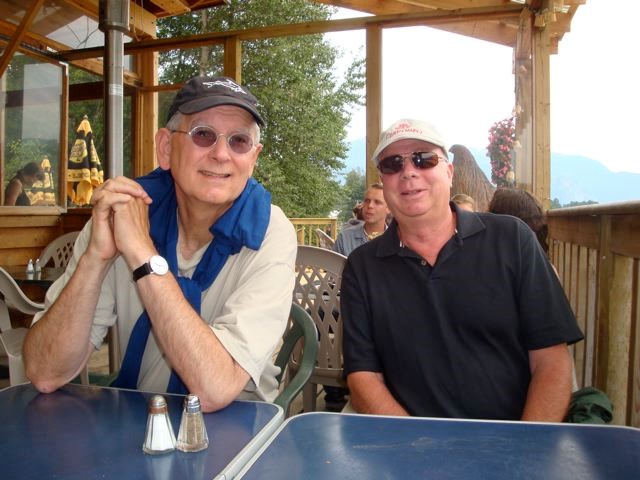
Having lunch in Squamish with past WRSA president Warren Gill (2010).
By the late-1970s I was looking for a more permanent residence. I had been talking a lot with Michael Dacey in Geography at Northwestern University and was very fortunate to avoid the personnel fiasco that was just brewing there. Instead I moved to the University of Arizona in Tucson, which in many ways turned out to be a very good choice. At that time both Geography and Economics were located in the Business College so the Geography faculty received a lot of exposure to undergraduates who were interested in either real estate or local development. We also encountered students who were keen on entering the university’s graduate Planning program, where they would be greeted by Penn graduate Art Silvers. Even though the department was eventually moved to another college, we slowly put together a very solid program in Regional Development that attracted up to 300 majors per year and produced some of most distinguished undergraduates across the entire university. Unfortunately, though, departmental politics trumped this success story and several of my colleagues eventually left in frustration over the department’s new direction.
While I was finishing up a number of papers on multipurpose shopping and central place populations I became intrigued by the work being done on small towns by several of my colleagues, including Lay Gibson. Much of this was applied research, funded by the Arizona government, and involved the collection of employment data in the field. Here the economic bases of many towns in the US Southwest were summarized in a series of monographs that were published over a twenty-year period. I thought the results could be usefully generalized by collapsing the results into one data set and this led to my work on estimating small-area economic base multipliers. Once micropolitan places were recognized by the U.S. Census Bureau in the 1990s I was able to use this earlier work to establish another shortcut method for estimating multipliers in towns and less populous counties. One of the most important contributions here was showing how non-earnings income and other factors, including the incidence of natural amenities, can affect both the size and job composition of those multipliers.
While at Arizona, which I eventually left in 2006, I was fortunate to supervise some very good graduate students, but had special relationships with Timothy Fik and Alexander Vias. Tim’s enthusiasm for all problems involving geographic clustering and spatial contiguity was infectious and he was largely responsible for my rethinking of various analytical matters, including how conjectural variations might affect both price and location in spatial competition models. We enjoyed a good division of labor where one of us would design the mathematical models while the other would write programs for the numerical solutions. Alternatively, Alex’s interests were along the lines of rural economic development and we became very interested in unpacking “chicken or egg” issues, especially trying to detect whether population growth was leading or lagging employment growth across the American West. This demo-economic work was nicely informed by the insightful ideas on interregional compensating differentials that had been pioneered by other regional scientists. Productive relationships were also formed with many others, including Meagan Cahill, who worked on urban crime; Sang-Yool Lee, who studied the role of uncertainty in agriculture; and Chris Bitter, whose remains interested in all aspects of housing. I particularly enjoyed working with those graduate students whose interests did not coincide with my own as they challenged me to read new literatures and grasp different methodologies.
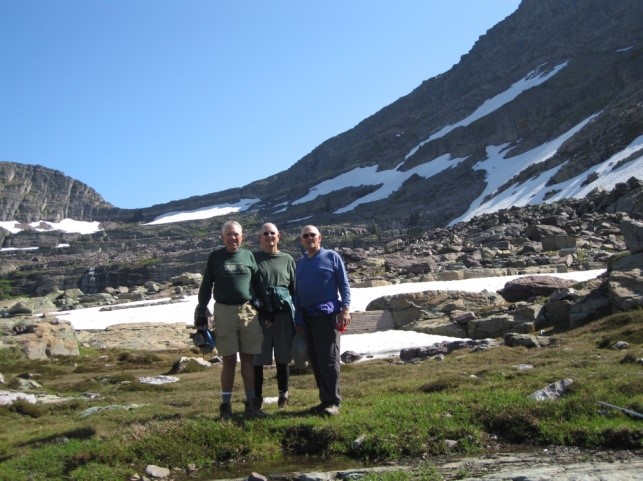
Hiking with Dave Boyce and Curt Eaton in Glacier Park; photo by Jay Allen (2011)
Dave Plane joined us at Arizona in the early 1980s and we later co-edited the Journal of Regional Science for nearly a decade. Even though Dave and I both enjoyed some prior editorial experience, we were a little anxious when we assumed this responsibility because Ron Miller had done such an exceptional job with the journal at Penn. Dave is one of the most organized scholars around and we soon agreed to meet once a week to keep on top of the steady flow of submissions and reviews. I like to think we broadened the audience of the journal although we were never in favor of publishing special issues, a trend that seems so popular today. It is not common knowledge that the JRS was once owned by the Regional Science Research Corporation and that it was during our tenure that all production matters were transferred to Blackwell. Basically Ben Stevens was the RSRC and I can still recall the lengthy (and expensive) telephone discussions between Ben and myself—where he talked and I listened—that addressed the journal’s direction, impact, and readership.
Over the years several other well-known people—including Adrian Esparza, Brigitte Waldorf, and John Carruthers—joined our core group at Arizona so that, during the 1990s, we had a very strong regional science program. My exposure to John proved to be especially fruitful as we went on to do a number of projects together after we had both left Arizona for other climes. Our earliest interactions led me to reconsider the issue of amenity valuation and this topic has remained on my active list ever since. John also persuaded me of the great importance of land-use issues, whose neglect has serious implications for quality of life in both metropolitan and nonmetropolitan settings.
Without doubt the two highlights of my academic career were my regional science retirement party and my Fellows selection. In conjunction with the 2010 meetings of the Western Regional Science Association, John Carruthers arranged a sumptuous dinner in the Sedona hills that brought together a large international crowd of friends and well wishers. The highlights included some dubious stories by Bob Stimson and a clever roasting of my accomplishments by Kingsley Haynes—both close friends and past RSAI presidents. Using some of the diverse papers that were given at that meeting, a special issue of the Annals of Regional Science was then dedicated in my honor. I have mixed emotions when I think back on this special occasion because two of the participants, who were especially good friends, passed away soon thereafter. Being notified of my Fellows selection later that year was an equally satisfying event. Now, though, I sought something a bit more intimate so I requested that the award ceremony be delayed until the summer of 2011 when I would be hiking with friends in Glacier Park. This prestigious RSAI award was presented to me by Dave Boyce on a lovely day at a lodge overlooking Swiftcurrent Lake and the event was photographed by Curt Eaton, who had served on my PhD committee so many years earlier.
These days I’m living in Squamish, British Columbia, five miles from where I started, where I stay active hiking in the summer months and curling during the winter. I still remain involved in research and continue to enjoy working with younger regional scientists on a variety of different topics. In fact I believe I have now published with more than 40 co-authors over the years. Many of these people have been students of mine—either undergraduate or graduate—and that has been one of the most satisfying aspects of my career. I try to make it out to one or two regional science conferences each year but generally restrict myself to those having fewer participants, like the British-Irish meetings. On the other hand it is encouraging to see so many younger people at the larger meetings, including the WRSA where former Arizona student Rachel Franklin has been active in recruitment. So if you happen to spot me at one of those meetings please feel comfortable about coming up and introducing yourself.
(Published on RSAI Newsletter 2015 November)
Luc Anselin
My first exposure to Regional Science was through my late uncle, Marcel Anselin, who was an economics and planning professor at the University of Ghent in Belgium. I was an undergraduate in economics at the Free University of Brussels (the VUB) and he and my aunt would have me over to their place in Provence during the summer. Over dinner (and wine) he would talk about his participation in the European Regional Science conferences and meeting early visionaries such as Walter Isard, Thomas Reiner and John Dyckman. I was hooked.
After my undergraduate work (1975), I completed a masters degree in Econometrics, Operations Research and Statistics at the VUB (1976) and also did some graduate work in my uncle’s regional planning program in Ghent. By then, I had a position as a research associate in the Center for Demography at the VUB run by Ron Lesthaeghe, where I worked on a model that integrated long term economic and demographic trends, coincidentally also the topic of my undergraduate thesis. At the time (1977), the prospects for an academic career in Belgium were pretty dismal, so I was encouraged by my uncle and my undergraduate mentors (including Herbert Glejser, a well-known econometrician) to pursue further graduate work in the U.S. My uncle had (nearly identical looking) flyers from the Cornell and Penn Regional Science programs. I applied and was admitted to both to study under Isard, who was affiliated with both places. It was a difficult choice, but my decision was made easy by a call from Isard to my parents’ home encouraging me to pick Cornell. As it turned out, Isard moved there full time the next year.
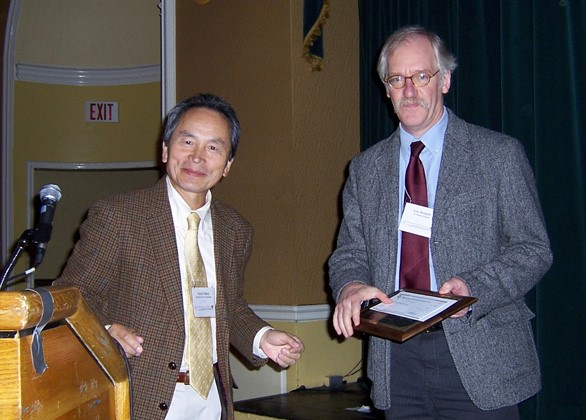
Anselin receives the Alonso prize from Koichi Mera
As part of my research in the Center for Demography, I had become interested in cross-sectional econometric analysis and in the problem of “spatial autocorrelation.” In the 1970s, economic time series tended to be short and Belgium had good data at the level of the “arrondissements” so that a cross-sectional (or pooled time-series cross-sectional) perspective was very attractive. This brought me to the early work in spatial econometrics by the Dutch regional economists Paelinck, Kuipers and Hordijk and the UK statisticians and geographers Ord, Ripley and Cliff. This is what I wanted to pursue for my dissertation. Of course, what I did not realize is that at Cornell nobody was really interested in this topic, let alone did work on it. I had a very hard time convincing Isard that this could be turned into a dissertation, as his initial reaction was to dismiss spatial dependence as a “red herring” (not knowing what this was, I had to look it up). Eventually, he agreed that I could pursue it, as long as I also worked on integrated multiregional models, which I did. I also had Bill Greene on my dissertation committee, to make sure that what I did was legitimate econometrics.
At Cornell, I did not take many courses, but had several intense independent studies with Isard and Stan Czamanski, who was also on my committee. In summer 1980, Isard organized the first World Regional Science and Peace Science Congress in Cambridge (MA) and had me attend (for two weeks!) as a rapporteur. It was a great opportunity to meet the leading and up and coming regional scientists, such as Bill Alonso (I had written a paper on his general theory of movement, which became my first publication, co-authored with Isard), Geoff Hewings, David Boyce, Peter Batey and the late Moss Madden, among others (I would later co-edit a book with Moss).
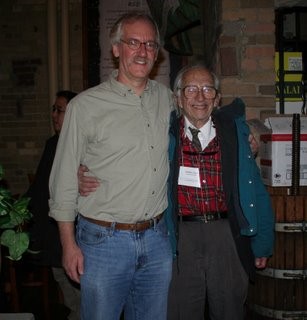
Luc Anselin with Walter Isard
In addition to being a valued advisor and a great role model, Stan Czamanski was also instrumental in helping me get my first academic position. His son, Dan Czamanski was a faculty in City and Regional Planning at Ohio State and I was encouraged to apply for a position. I joined the department in Fall of 1980. At Ohio State, there was a small informal Regional Science group with Czamanski, Larry Brown and Emilio Casetti among others, which made for a very stimulating intellectual environment. I continued to work on integrated multiregional modeling. I also continued to work on the specification of spatial interaction models, which resulted in my first NSF grant. However, very quickly, I returned to my original interest in spatial econometrics, specification tests and estimation methods.
This further intensified after my move to UC Santa Barbara in 1985, where I joined the geography department. I received my second NSF grant, this time to work specifically on spatial econometric methods. At one of the North American RSA meetings, Peter Nijkamp encouraged me to consider compiling my papers into a book for the Kluwer Series in Operational Regional Science, of which he was the editor. This became my 1988 Spatial Econometrics book. I intended it to be more than simply a compilation of my earlier work, but set out to situate spatial econometric methods within econometrics as such, with a focus on the treatment of spatial dependence and spatial heterogeneity. The book ended up being a great success and it is still available for sale. One of the challenges for the book was to come up with good empirical examples to illustrate the range of estimation methods and test statistics. This also required software. I had already started to turn the Fortran code from my dissertation into Gauss (a matrix language) and developed this into a software package for spatial econometrics, SpaceStat. First, I used it mostly in my teaching, but as the demand (via word of mouth) increased, I decided to have it distributed by the NSF-funded National Center for Geographic Information and Analysis (NCGIA) that had been established at UCSB in the late 1980s. SpaceStat turned out to be extremely popular, and I believe it may have had a lot to do with the dissemination of the spatial perspective among the mainstream social sciences. During my time at UCSB, my world perspective gradually started to shift from that of an economist to more of that of a geographer, or, more specifically, a geographic information scientist. In part, this was a result of the interaction with my colleagues Waldo Tobler and Reg Golledge, and later Michael Goodchild and Art Getis (who spent his summers in Santa Barbara), as well as through my involvement with NCGIA. At UCSB, I also had my first doctoral students: Sergio Rey and Uwe Deichmann. Serge became a lifelong collaborator and friend and is now my colleague at ASU. Uwe joined the World Bank and we have occasionally worked on studies together.
While at UCSB, I became more involved with RSAI. I was the local organizer of the 1989 Santa Barbara meetings and was appointed North American Editor (1992) and then Editor-in-Chief (1993) of the Papers in Regional Science.
Late one night at the NARSC meeting in New Orleans, Andy Isserman approached me about joining him at the Regional Research Institute (RRI) of West Virginia University. Those who knew Andy well (he sadly passed away in 2010) understand that he did not easily take no for an answer, and, after some back and forth, I agreed to the move in 1993. RRI was a fantastic environment. It occupied a small house on High Street in Morgantown, sufficiently separate from the campus to provide for a great research setting, but yet connected to faculty in several departments. The place had a fantastic library with an enviable collection of urban and regional journals. At RRI, I was able to devote almost all my time to research and started work in several new directions, in collaboration with two new PhD students, Oleg Smirnov and Attila Varga. At UCSB, I had started to work in GIS and specifically on connecting spatial analytical capability to GIS software. I pushed this further, initially still using the GIS for the visualization (the SpaceStat and ArcView link), but gradually developing a free-standing software capability, the core of what later would become GeoDa. This interest in computation matched Oleg’s dissertation work, and we jointly explored various ways to scale up spatial estimation methods to larger data set sizes. Paralleling this, I started to investigate exploratory spatial data analysis or visual analytics and various ways to make the results of spatial autocorrelation analysis graphical. This yielded the idea for the Moran scatter plot and the Local Indicators for Spatial Autocorrelation (LISA). The 1995 Geographical Analysis paper that introduced these concepts turned out to be my most cited article (approaching 5,000 citations in Google Scholar).
Attila Varga was interested in the impact of university research on the regional economy. I had done some early work on this topic at UCSB (which had got me connected with Raymond Florax, serving on his dissertation defense), and Attila had obtained a very interesting data set from Zoltan Acs (now at George Mason). This was the start of a series of joint papers dealing with the spatial impacts and spillovers of university research, which received considerable attention in the literature. During this time, I also organized several series of special sessions on spatial econometrics at the Regional Science meetings, which resulted in an edited volume with Raymond Florax.
In the mid 1990s, I was contacted by Anil Bera, an econometrician at the University of Illinois about a way to extend a test statistic he had developed into the spatial domain. This turned into the robust Lagrange Multiplier tests for spatial lag and spatial error dependence, and a much cited joint paper in Regional Science and Urban Economics (1996) with Bera, Florax and Yoon. Next, Anil and I also wrote the first overview of spatial econometrics for the Handbook of Applied Economic Statistics, which was the first of a number of such chapters that I authored in the next 10 years. These chapters went a long way to make “mainstream” econometricians engage with spatial issues.
At RRI, Andy Isserman insisted that I become involved with the International Regional Science Review, which I joined as Editor in 1996, something that I continued to do until a few months ago. Andy left RRI in 1997, but after a brief passage at UT Dallas, I rejoined him at the University of Illinois in Urbana-Champaign, where he had returned. My new home was the Department of Agricultural and Consumer Economics and I also became part of Geoff Hewings’ REAL group.
At Illinois, my interest started to shift even more to the computational aspects of spatial data analysis. I established the Spatial Analysis Laboratory and had an exciting new cohort of graduate students and visitors (e.g., Ibnu Syabri, now at Bandung Institute of Technology; Nancy Lozano, now at the World Bank; Julia Koschinsky, now at ASU; and Julie LeGallo, University of Franche-Comte). I was a Co-PI of the NSF-funded Center for Spatially Integrated Social Science (CSISS), specifically tasked with coordinating and developing software. Out of this came the first release of the GeoDa software package in 2003. The adoption of GeoDa vastly exceeded our initial expectations (a goal of 1,000 adopters listed in the NSF proposal) with over 120,000 users to date. In parallel with the development of GeoDa, I also started to collaborate with Serge Rey on PySAL, an open source library for spatial analysis, written in Python. Both projects are still very active.
Around that time, my work started to receive broad recognition in the Regional Science community: I was elected Fellow in 2004, received the Isard Award in 2005 and the Alonso Prize in 2006. In 2007, I moved to Arizona State University to lead the School of Geographical Sciences and later merged it with the planning program to found the School of Geographical Sciences and Urban Planning. I also set up the GeoDa Center as the successor of the Spatial Analysis Lab, and was able to recruit an outstanding set of colleagues, post-docs and graduate students. The GeoDa Center has become a hub for the development and dissemination of open source spatial data analysis software, including an open source and cross-platform version of GeoDa and bi-annual releases of the PySAL library. In 2008, I was elected to the U.S. National Academy of Sciences, the only person with a PhD in Regional Science in that body. In 2011, I was also elected to the American Academy of Arts and Sciences. In that year, ASU had appointed me as a Regents’ Professor, after awarding me with an endowed chair the year before. They allowed me to name the chair and I contacted Isard to obtain his permission. This turned out to be my last conversation with Walter, but I am extremely proud to be the holder of the Walter Isard Chair at ASU.
After six years as an administrator, I stepped down and enjoyed 1.5 years of sabbatical, teaching and engaging with colleagues at MIT, Brown University and the University of Chicago. I also finished a long-standing project and published Modern Spatial Econometrics in Practice, a Guide to GeoDa, GeoDaSpace and PySAL with Serge Rey. I have started a new research agenda, focusing on the integration of ideas from econometrics, statistics and machine learning into a new spatial data science, and the exploitation of new (and big) data sources to study the dynamics of cities and regions. I am still hooked.
(Published on RSAI Newsletter 2015 May)
Masahisa Fujita
It is my great honor and pleasure to write about my 50-year academic journey in the field of Regional Science. Without my encounter with Professor Walter Isard and Regional Science in the late 1960s, my life would never have been the same. Before talking about how such an encounter happened, let me briefly explain how I grew up in Japan. I was born in 1943 in a small coastal village at the western end of the main island of Japan. Since the end of the WWII in 1945, my village had housed a small unit of the American occupation army (until 1951). I grew up there, chasing American soldiers on jeeps for chocolate candies. Given that Japan was so poor at that time, I did not even dream of going to the USA someday. Japan, however, started growing very rapidly in the mid-1950s, initiating the construction of major public infrastructures such as a super express railway system, called the Shinkansen, and a turnpike system. As a young boy, I was fascinated by such big construction projects, and naturally chose to study in the Civil Engineering Department at Kyoto University. At college, however, my interest shifted gradually from the construction work itself to the planning and social evaluation of these major infrastructure projects. Until my graduation from college in 1966, however, I had never heard of Regional Science.
My association with Regional Science started soon after becoming a research assistant of Professor Kozo Amano in the Civil Engineering Department. One day, Professor Amano, a former engineer at the Japan National Railway, told me that he had a big job for me. He said, “As you know, a super express railway, the Shinkansen, has just been completed between Tokyo and Osaka. The Ministry of Transportation wants to extend it all over Japan. However, the Ministry of Construction wants to develop instead a turnpike system all over Japan. So, you should develop an econometric model of the Japanese regional economy, and compare the economic impact of the nationwide development of the Shinkansen network with that of a turnpike network.” At that time, my knowledge of economics and econometric models was absolutely zero. So, I asked Professor Amano, how I should go about it? Then, my boss brought two books from his bookshelf, saying that, they might be of some help. The two books were ‘Location and Space Economy’ and ‘Methods of Regional Analysis’.
I first skimmed over Location and Space Economy. I felt something quite interesting with the book, but decided that it was too theoretical for my immediate job. So, I browsed the other thick book, Methods of Regional Analysis, and immediately found that this was exactly what I needed. Using various methods explained in the book, I developed an interregional econometric model of Japan. It was a huge interregional econometric model, estimating recursively the nationwide impact of developing the Shinkansen network over a 25-year period, compared to that of building a turnpike network. With the help of three professional computer programmers, I finished the computer calculations on time, and managed to report the results successfully at the joint meeting of the Ministry of Transportation and the Ministry of Construction in Tokyo (part of the work was subsequently published in the Journal of Regional Science in 1970).
As such, my first serious association with Professor Isard's work was through Methods of Regional Analysis. After finishing my first job, however, I became very hungry for theories, which made me remember the other book, Location and Space-Economy. So, this time, I read the book more carefully. Somehow, I was quite fascinated with the book. But, to tell the truth, I was able to understand very little of it. I wanted to study more seriously the foundations of spatial economics, and confessed this desire to Professor Amano. He told me: “if you are interested in learning such things, you should go to the Regional Science Department at the University of Pennsylvania”. I had never heard of this university, but it did not matter, and I asked, “how can I go there?” Then, he brought me a copy of the Journal of Regional Science from his bookshelf, and showed me its backcover, saying, “Look!, the Department of Regional Science is offering a scholarship grant. Why don't you apply for it?” Although I had little hope, I applied for the grant. One month later, to my great surprise, I got a letter from Professor Isard informing me that I got the grant. That marked the end of Phase 1 of my research career and the beginning of my 25-year association with Penn.
In the early summer of 1968, I headed for Penn brimming with renewed enthusiasm and high expectations of learning more about Location and Space-Economy from Professor Isard. Upon arriving at Penn, I found that the entire curriculum of the Regional Science Department in the graduate school was well organized beyond Methods of Regional Science and Location and Space Economy. The department, however, was rather small, with about two dozen students. It was almost like a big family with Professor Isard as the godfather. I also took many economics courses in the Department of Economics that shared the same building with the Regional Science Department. I was also fortunate to be included as a member of the location theory seminar group headed by Professors Benjamin Stevens, John Parr, Tony Smith and Colin Gannon. The seminar was an informal one with about ten regular members, taking place once a week throughout the year. Every Friday, we took a dinner together, and started the seminar at 7 o’clock, in which a member presented his recent research work. The informal seminar continued for about three hours, followed by further discussion in the bar!
My Ph.D. dissertation on multi-regional economic growth models was completed in 1972. I was quite fortunate to be supervised by Professor Tony Smith who taught me most of the advanced mathematics that I needed throughout my subsequent academic career. Furthermore, the seed of my long research-collaboration and friendship with Tony was nurtured during this period. The revised version of my dissertation was published in 1978 as Spatial Development Planning: A Dynamic Convex Programming Approach by North-Holland.
Following this Phase 2 of my research career as a Ph.D. student at Penn, Phase 3 started when I went back to the Department of Civil Engineering at Kyoto University in 1972. There, I began my research on urban economics. One of my dissatisfactions with the then prevailing urban land use theory was that no consideration was given to the high adjustment costs of land use. Thus, my main research topic in Phase 3 was the development of dynamic urban land use models with explicit consideration of such adjustment costs. Meanwhile, one day, I got a letter from Walter Isard, to my surprise, inviting me to come back to Penn to teach at the Regional Science Department. In the fall of 1976, I started teaching location theory courses at Penn, using Location and Space Economy as the main textbook. I continued my research on dynamic urban models, publishing eventually a dozen papers on this topic in various journals. In 1983, based on my research work in Phases 2 and 3, I was awarded The First Erik Kempe Prize in Memory of Tord Palander from the University of Umea, Sweden.
In the early 1980, my research career entered into Phase 4 in which I studied the general equilibrium and self-organization of urban spatial economy. This topic reflected another dissatisfaction I had with the then prevailing urban economics models based on the traditional assumption of monocentricity, inherited from the classic work of von Thünen (1826). It was rather obvious to me that most large cities were not monocentric; furthermore, a complete urban model should determine endogenously whether a city was monocentric or took on another form. I developed three types of non-monocentric urban models. First, together with several Ph.D. students at Penn, including Hideaki Ogawa and Mitsuru Ota, we developed the general spatial equilibrium models of cities under communication externalities. Second, Jacques Thisse and I started our research work on the spatial competition approach to urban modeling. Our friendship and research collaboration, still continuing today, was nurtured during this period. Third, I initiated my research work on monopolistic completion models of urban spatial organization that was further developed with a then Ph.D. student, Hesham Abdel-Rahman. In this period, I also worked with Tony Smith, Marcus Berliant and Yasushi Asami on the discrete foundations of continuous land use theory. In the late 1980s, I intended to write a two-volume book on urban economic theory. Actually, however, I completed only the first volume on the static theory of monocentric cities (Cambridge University Press, 1989). Then, before writing the second volume on dynamic and non-monocentric cities, my interest changed.
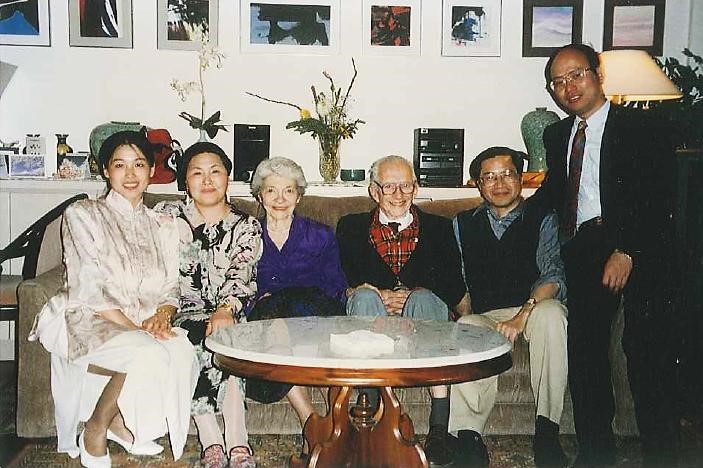
From right to left: Professor Yang at Peking U., Masa, Walter, Caroline Isard, Yuko (Masa’s wife), and Mrs. Yang at Masa’s home in 1993
Phase 5 is marked by the research collaboration with Paul Krugman and Anthony Venables on the development of the monopolistic competition theory of the spatial economy. As is well known, Paul Krugman published a pioneering paper, “Increasing Returns and Economic Geography,” in 1991 (JPE). I met Paul for the first time in November 1991 in Houston, surprisingly, at the North American Meeting of Regional Science Association. Confirming that our research interests were very close, we agreed to initiate our research collaboration. In the spring of 1992, Paul visited Penn to present his recent work, and we started our joint work. The first paper was completed in 1993 in the form of a Working Paper in the RS Department at Penn, and a part of it was published in 1995 (“When is the Economy Monocentric?: von Thünen and Chamberlin Unified”, ‘Regional Science and Urban Economics’). While continuing my joint work with Paul and several Ph.D. students at Penn (among others Tomoya Mori and Nobuaki Hamaguchi) on the same topic, I moved back again to Kyoto University in the spring of 1995. Paul also continued his joint work with Anthony Venables (then at LSE). When Paul, Anthony and I met in Tokyo at a conference in 1996, we agreed to write a book together on a unified theory of spatial economy based on our joint works. For a month in the summer of 1996, the three of us confined ourselves to a small room at the LSE, and developed the skeleton of the book. Then, after several more face-to-face meetings and frequent e-mails, The Spatial Economy: Cities, Regions and International Trade was published in 1999 by MIT Press. The World Regional Science Council awarded Paul and me in 2002 the First William Alonso Prize for our contributions to spatial economics.
In Phase 6 since the early 2000s, I worked with Jacques Thisse on the unification of urban economics and the so-called New Economic Geography, resulting in the publication of Economics of Agglomeration in 2002 from the Cambridge University Press (the second edition, 2014). Then, while teaching at Konan University in Kobe and serving as the president at the Institute of Developing Economies (and more recently at the Research Institute of Economy and Trade in Tokyo), I started working with Marcus Berliant on the development of dynamic models of knowledge creation by heterogeneous people, leading to the endogenous formation of regional cultures. On this topic, we have so far published six papers in various journals (among others, IER in 2008 and RS&UE in 2012). We are now investigating the possibility of creating a robot economist!!
Thus far, I have supervised 48 Ph.D. dissertations (37 at Penn, and 11 at Kyoto University). I am also quite grateful for The Walter Isard Award in 1998, and the Fellow Award of the RSAI in 2003. Although Professor Walter Isard passed away in 2010, my journey with regional science will continue.
(Published on RSAI Newsletter 2014 November)
Antoine Bailly
My academic origins have always been close to regional science, even if I did not know what regional science meant when I joined Besançon University for a master’s degree in geography in 1962. Besançon was a small, provincial university, where most students just wanted to be high school teachers and stay in the region to live a good life, enjoy the food and the local wine.
However, one of my professors, Paul Claval, told me in 1965: “You should go to the U.S.A., to Pennsylvania University to study regional science”. Luckily, I was able to obtain a scholarship (I had no idea about the scholarship fees and what they really offered . . .) to study and discover the centre of regional science. With Walter Isard, Thomas Reiner and I spent a fantastic year, discovering the use of computers and new ways of modelling. I also became friends with some of the students, such as Mario Polese and Eric Weiss. This stay really marked the beginning of a network of young international regional scientists who shared ideas, culture and the world.
After returning to France to work on a PhD (at Paris Sorbonne), I discovered that regional science was also active in France with Claude Ponsard, Jacques Boudeville and François Perroux. I was fascinated by the application of the growth pole theory in Europe and by French national land-use planning. Ponsard proposed me for an assistant professor’s job in Dijon. But even with the attraction of Burgundy, I could not find a reason to go there at that moment.
It was time for another adventure. In order to avoid military service, I went to Canada, where I got a job at “College St Jean”, in Edmonton, Alberta. I taught geography to undergraduate students coming from northern Canada. It was far from land planning and regional science. Working with Natives and farmers, hunting, and discovering the far North! Still, my friends from Penn were close by, helping me to keep in touch with the rest of the academic world. At that time, the Institut National de la Recherche Scientifique Urbanisation was opening in Montreal. I visited Montreal in the summer, and discovered a lovely city, its cafés, restaurants, and universities.
Since 1969, for 10 years, I spent all my summers and autumns in Montreal working with the INRS before joining them as a full time professor in 1977. The rest of the time, I was a professor at the Paris School of Architecture teaching urban ecology. Crossing the Atlantic was my weekly activity; fortunately, I loved flying!
During my stays in Europe, I discovered the Association de Science Régionale de Langue Française and its dynamic and friendly leader Jean Paelinck. I joined my first meeting in Rotterdam in 1974, and organized different round tables in subsequent years. With Jean’s friendship and guidance, the Association was a true family. The people I worked with included Alain Sallez, Jean-Marie Huriot, Claude Lacour, and Denis Maillat. I became President of the Association from 1981 to 1984, which was a good way to improve the links between the European Regional Science Association and A.S.R.D.L.F.: by choosing common dates for meetings, exchanging information, and improving the relationship between Perroux and Isard, the two masters.
In 1979 I joined the University of Geneva as Professor of Human Geography (until 2004 – now I am Emeritus), and that marked another phase in my life. I was able to start a special course in regional science for first-year graduate students. The course was later taken by more than 500 students, over more than 20 years: one of the largest regional science audiences worldwide. The Faculty of Economic and Social Sciences was a good place for interdisciplinary research, and with other geographers, such as Jean-Bernard Racine, we were able to develop the “Swiss School of Geography”, developing a world-class reputation.
Regional Science was close to this new geography and it is the time when, with Denis Maillat and Angelo Rossi, we were able to promote the field in Switzerland where we organized a European meeting (Zurich) and a RSAI World Congress (Lugano). It was also a way to invite our American friends to visit Switzerland and taste our products. Applied regional science!
When I met Lay Gibson in one of these early meetings, Lay suggested I also join WRSA (Western RSA). Laguna Beach in 1986 was my first meeting. What a great place for me and my daughter!
Since I was living “West of Switzerland”, I joined nearly all the meetings of this Western Association after 1985. I even became the 36th president of WRSA in 1995.
It is also a period where I was involved with ERSA and the European Organizing Committee (for ERSA conferences), as vice-president, under Juan Cuadrado Roura. This was another experience, working in an association with the most intense meetings I had ever joined. And academics do love debating! We also created a long run planning group that I chaired. After a while new board members and presidents also joined these activities (partly due to the skills of negotiation brought by Juan and Antoine – Editors).
In the 1990s, after publishing many geography and regional science books in French, I decided to publish some papers in English. This was the beginning of an active international life, working through the ‘crisis of the future of regional science’ (a period when many in the discipline were debating the right course of direction); followed by my election as president of RSAI in 2003. With Graham Clarke (Executive Director) and a number of very active council members, we were able to change the status of the Association to a world umbrella association with universal membership. I don’t know how many beers we shared on all continents, but it was efficient and friendly.
It was also a period where I was, for 8 years, scientific Director of the International Festival of Geography: a fantastic festival attracting geographers from all over the world, at times with over 40,000 participants! Many regional scientists were able to join the Festival and to give conference presentations participate in round tables, take part in TV shows (Kingsley Haynes, Bob Stimson, Lay Gibson, Roger Stough and others). There was a place for regional science and an opportunity to promote the field in the media: and also time to organize field trips for the visitors.
During all these years, I also spent a lot of time developing the geography of well-being and medicometry, an applied regional science field involving health care policies. I organized more than 50 meetings with Michel Périat, chairperson of Forum Santé (1998– 2014) , a Swiss health care think tank, and wrote research reports on the multiplier effects of the health care sector. Medicometry is now a new brand in regional science!
My academic life was also marked by a number of responsibilities: director of department, president of the University of Geneva Council (1983–1985), President of the Swiss Universities Professors (1996–1998). For this involvement and scientific activity, I acquired three doctorate honoris causa (University of Quebec 1992, Hungary Academy of Sciences 2003, University of Lisbon 2009). I was also awarded by the Association of American Geographers in 1997, got the “Ordre National du Mérite” from France in 2000, received the 2008 Founder’s Medal from RSAI and the famous “Vautrin Lud Nobel” prize in geography in 2011. I am also very proud to be a “Fellow” of RSAI, a great association.
All these awards are matched by the winning of many friends who have shared my regional science life. We don’t only live in an association or a network; we have the chance to belong to a “club” where we enjoy social activities (in my case skiing, hiking, wine tasting and good food in nice places) and promote regional science. Now that I have time, I even produce my own wine in Switzerland! Isn’t it a good way to do applied regional science? I believe the ‘crisis’ is over.
Long live the new generation of regional scientists.
(Published on RSAI Newsletter 2014 May)
David Plane
Flower Child of the Quantitative Revolution and Second-Generation Regional Scientist
I was a flower child of geography’s quantitative revolution, and I am a second-generation regional scientist. My concept for this article is to ponder the vagaries of how academic careers get launched, the ways regional science wended its way into mine, and why, subsequently, our multidisciplinary institutions came to consume a large portion of my intellectual energies.
Various outstanding scholars were instrumental in mentoring me, and – through my spatial demographer’s lens – I’ve come to view the intellectual enterprise of regional science as being fundamentally about passing the torch to future generations (“What about aging in regional science,” The Annals of Regional Science, 2012).
I began my formal education in a one-room school, on the second floor of a WWII bombed-out manor house, in a small village in England. The year was 1961 (my dad, a Cornell University chemist, was at Oxford on a sabbatical leave). Our teacher, Miss Watson, was quite keen on math, but thought reading humdrum. She awakened in me an intuitive, conceptual approach to math that has served me in good stead throughout my academic career. I would grasp long division in that first year of school, but it would not be until third- grade that I would puzzle out how to read.
Growing up, I fancied pursuing a career as an architect; math and art were my favorite school subjects, with geometry a special passion. In 1972 I enrolled at Dartmouth College and began the pre-architecture curriculum. This involved vast swaths of studio art, but little actual architecture prior to senior year. So, in the meantime, I began taking geography classes. Dartmouth (which prides itself on doing whatever Harvard doesn’t) had retained geography as a major subject and continues to this day a proud tradition of launching the careers of numerous academic geographers (WRSA Fellow, Richard Morrill of the University of Washington, among the most distinguished).
At Dartmouth, I was mentored by geography professor Jack Sommer (who would later become a stalwart member of WRSA). Jack got me hooked on spatial analysis, directing me to the works of D’Arcy Thompson, Peter Stevens, Michael Woldenburg, William Warntz, Bill Coffey, Peter Haggett, Richard Chorley, and others advancing morphological perspectives on natural and human systems. And I became drawn to regional planning, which during that radicalized era seemed more socially relevant career than architecture. Working during leave terms for the office of the St. Lawrence County (New York) Planning Board, I drafted Ian McHarg-style (Design with Nature) overlay maps: the precursor, in many ways, to modern GIS layer analysis.
When it came time to choose a graduate program, Professor Sommer gave me a list of what he considered the top North American geography departments and leading “quantifiers” (that quaint, somewhat pejorative label for those then spearheading Anglo-American geography’s spatial analysis revolution). Among the schools on his list was the University of Pennsylvania, and, among the scholars, Walter Isard. My dad was at that time the Provost of Cornell (according to long-time RSAI archivist, Barclay Jones, during his tenure he approved the creation of Cornell’s Regional Science doctoral program) and he, too, suggested I go down to Philadelphia to talk with Walter about graduate school possibilities. I remember sitting on a stack of papers in the Founder’s (perpetually overstuffed-with- research-detritus) office and asking: “Should I enroll at Cornell or Penn?” Thinking a moment, he replied: “For you, David, Penn.”
With a plan to ultimately become a transportation planner, during my Master’s year of 1976–1977 I studied with David Boyce and Bruce Allen. I recall David chuckling when he informed us we shouldn’t plan on going anywhere for spring break, because Alan Wilson would be coming across the pond to give a week of seminars on entropy modeling. Those masterfully presented lectures, plus a later presentation by Folke Snickars on his work with Jörgen Weibull on a “Minimum Information Approach” to trip distribution modeling, along with Ron Miller’s elegantly presented courses on input-analysis, and Masa Fujita’s on location theory, laid the seedbed for my later dissertation work. Under the direction of Tony Smith, Dan Vining and Janet Madden, I investigated information-theoretic approaches to modeling temporal change in human migration patterns.
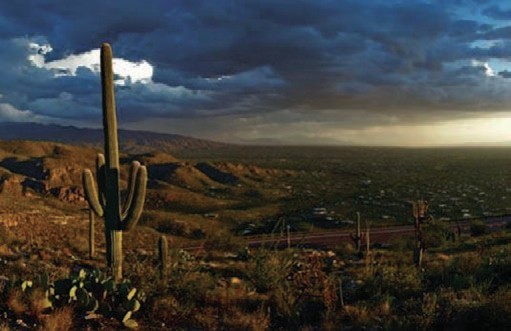 My academic career path was altered dramatically one day when Andrew Isserman popped into my grad student carrel at Penn. Andy informed me I was being hired – along with Larry Klein’s student, Paul Beaumont – to go to the U.S. Census Bureau as part of his American Statistical Association Fellow’s project to develop novel, combined economic/demographic population projection methodology. I naively told Andy: “No thanks; I think I want to continue working on transportation.” Alas, as others can readily attest, telling Professor Isserman, “No,” was virtually impossible. I soon found myself – sans any formal training in demography – the population specialist on the ECESIS Model development team. I owe a great debt of gratitude to John Long, Signe Wetrogan and others in the Bureau’s Population Division, as well as Andy, for providing on-the-job training in population analysis and for launching what was to become my primary career focus: the geographical analysis of population distribution and migration.
My academic career path was altered dramatically one day when Andrew Isserman popped into my grad student carrel at Penn. Andy informed me I was being hired – along with Larry Klein’s student, Paul Beaumont – to go to the U.S. Census Bureau as part of his American Statistical Association Fellow’s project to develop novel, combined economic/demographic population projection methodology. I naively told Andy: “No thanks; I think I want to continue working on transportation.” Alas, as others can readily attest, telling Professor Isserman, “No,” was virtually impossible. I soon found myself – sans any formal training in demography – the population specialist on the ECESIS Model development team. I owe a great debt of gratitude to John Long, Signe Wetrogan and others in the Bureau’s Population Division, as well as Andy, for providing on-the-job training in population analysis and for launching what was to become my primary career focus: the geographical analysis of population distribution and migration.
During the second year of the project, Peter Rogerson (then ABD at the University of Buffalo) was hired onto the ECESIS team, and he and I began our long and productive research collaboration and friendship, including joint authorship of our text and practical handbook, The Geographical Analysis of Population.
My first regional science conference attended was in 1974, at the Philadelphia North American meetings. I presented my first paper at the 1980 North American Meetings in Milwaukee; Kingsley Hayes gave the discussant remarks (after re-presenting much of my paper, which I’d been too nervous to get across very coherently). Also in 1980, I entered the faculty job market. A long interview trip took me out west, including, among other stops, to my first Western Regional Science Association conference in Monterey, California, and to Tucson, where I instantly hit it off with the geographers and regional science crew at the University of Arizona. Arthur Silvers, Gordon Mulligan, Carol Taylor West, Alberta Charney, David Barkley, and others were then in that outstanding group. (As I recall, during my interview Lay Gibson was off traveling somewhere else in the world, but he rolled out the welcome mat for me at WRSA.)
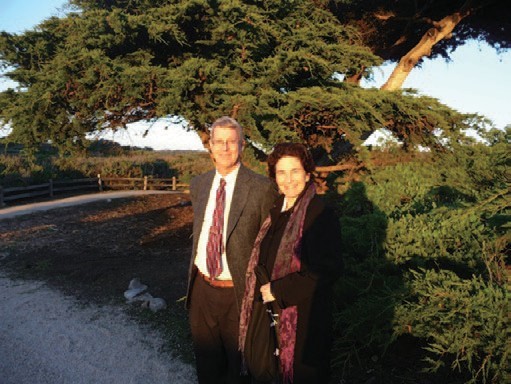
David with his wife, Kathy Jacobs during the 50th Anniversary Dinner of the WRSA in Monterey, California 2011
As a mongrel geographer/demographer, my own research is not as economics- oriented as that of many regional scientists, yet regional science has always provided my primary intellectual home. As I argued in my short 2005 piece in the Papers, “On discipline and disciplines in regional science,” I believe regional science offers “an almost perfect disciplinarily neutral meeting ground.” As in Walter’s vision, it continues to attract top minds bringing technical prowess from many directions to important societal issues of space and location. And the plain and simple style of regional science – it’s all about the scholarship and collegiality without the extraneous trappings of other disciplines and groups – has engendered remarkable loyalty among its adherents.
I’ve felt an almost missionary zeal in promoting regional science institutions and have devoted substantial energies over the decades to building regional science institutions. My first assignment came in 1984 at the Denver Meetings, when Walter Isard informed me that, henceforth, Peter Rogerson and I would become the North American Co-Editors of the Papers of the Regional Science Association. We proceeded to scramble to assemble some good papers for our first issue!
Prior to the 1988 North American Meetings in Toronto, David Boyce organized a (Quaker-meeting style!) workshop to discuss organizational structure of the Association, where it fell to me to draft the initial Constitution of the North American Regional Science Council (a document that took its inspiration, in part, from the Council of the Iroquois Indian confederation).
Shortly thereafter I worked with Lay Gibson to put together the first version of the RSAI Constitution.
In 1990, at the behest of the RSAI Council, I was tasked with transforming the old-style Papers, which had consisted exclusively of papers presented at the three major, superregional conferences, into a regular, quarterly journal. I served a three-year term as the first Editor-in- Chief of what we retitled: Papers in Regional Science: The Journal of the RSAI. Geoff Hewings, long-time Secretary of the Association, was extremely supportive, contributing substantially to that transformation. (As part of the effort, I paid a University of Arizona undergraduate art student, whose name, alas, I do not remember, the munificent sum of $50 to design the four-hexagon RSAI logo.)
In 1991, Lay Gibson handed me the reins as Executive Secretary of the WRSA, a post I would hold, with enthusiasm, through 2011.
In 1994 Ron Miller asked me to take over as Editor of the Journal of Regional Science. By then well into my first term as Head of the Department of Geography and Regional Development at the University of Arizona, I agreed, but only on the condition that I be allowed to co-edit with my more economics-oriented colleague, Gordon Mulligan.
I’ve had the immense pleasure of organizing a plethora of regional science conferences: some nineteen WRSA Annual Meetings (in spectacular venues!) from 1992 to 2011; North American Meetings in Houston in 1993 (assisting Janet Kohlhase), Santa Fe in 1998 and San Francisco in 2006; and the Pacific Conference in Portland, Oregon, in 2001.
I’m deeply honored to have been tapped to serve as President of both PRSCO (2002–2003) and NARSC (2010), to have been selected as a recipient of the David E. Boyce Award for distinguished service, and to have been elected as a Fellow of both WRSA and RSAI.
Regional Science has been very very good to me. It has given me the opportunity to participate in the flowering and maturation of a significant, international scholarly movement; to help build a multidisciplinary professional enterprise; and to forge a plethora of academic friendships around the globe. I hope all of us in “Club Regional Science” (as our late Springer-Verlag editor, Marianne Bopp, so aptly dubbed our collegial network) will place top priority on nurturing the third and now fourth generations of regional scientists. We should entrust in their youthful enthusiasm and energies, much as the founding generation did during the formative period of my – and my cohort’s – careers.
(Published on RSAI Newsletter 2013 November)
Bob Stimson
I became involved in Regional Science in 1972 when the economist Professor Alex Kerr invited me, along with a number of other people in Australia to attend a meeting to discuss the formation of an Australia and New Zealand Section of
Regional Science. I thus became one of a small group who were the founders of ANZRSAI, with our first annual conference being held in 1976. I’ve been heavily involved in the Regional Science Association ever since, attending my first overseas meeting that same year – the North American annual conference held in Toronto.
In the time since then I have been to all except five (I think that’s correct) of the annual meetings of ANZRSAI, and I was President of that Section for three years from 1980 to 1982. For the first time in 1981 we hosted PRSCO in Australia.
From the early 1980s I became a regular participant in the WRSA meetings, as well as PRSCO and NARSC meetings, and from the 1990s I have been a frequent attendee at ERSA meetings, and since 2000 I have had the pleasure of occasionally attending the annual meetings of the British and Irish, the French Speaking and the Italian Sections, and also meetings of the recently formed sections in Brazil, Chile and Argentina.
So regional science has been a major part of my life, and the involvement in RSAI activities over what is now a span approaching four decades had resulted in not only making countless good friends around the world, but also in developing a number of most productive research collaborations that have resulted in publishing a number of books and other publications.
International collaborations with other regional scientists have included Reginald Golledge, Rick Church, Lay Gibson, Edward Blakely, Roger Stough, Kingsley Haynes, Alan Murray, Antoine Bailly, Peter Nijkamp and Patricio Aroca.
I was deeply honoured when I was asked to become the President of RSAI in 2005 and 2006. And then in 2010 I was elected as Fellow of RSAI, an award that I cherish more than any other. Earlier in 1997 ANZRSAI had honoured me by making me a Life Member; in 2010–11 I was appointed President of WRSA; and in 2012 ANZRSAI presented me with the Distinguished service award.
All of this has been a life-enriching and career-enhancing experience that I never dreamed of when I started out as a young academic human geographer in an isolated country at the end of the world in the mid-1960s. I owe a great debt to regional science and the involvement in RSAI has been immensely enjoyable.
Reflecting on one’s career as an analytical human geographer and regional scientist and the research in which I have been involved, it is interesting to identify in my case a number of distinct phases that seem to have run for overlapping spans of about a decade each.
When I started out as a Senior Tutor in Economic Geography at the University of Melbourne in 1966 (after a few years as a high school teacher following my undergraduate course at the University of New England in Armidale in rural New South Wales where I had grown up and gone to school), marking the beginning of phase 1 of my career, I had commenced conducting research into the patterns of post-war immigrant settlement in Melbourne. Then in 1968 when I moved to a lectureship in Geography in the School of Social Science at the two-year-old new Flinders University in Adelaide I extended this interest in social urban geography to investigate social differentiation in residential areas of cities and the residential location decision and choice. The latter was the topic in which I undertook my doctoral research while teaching at Flinders U. That then morphed (by the late 1970s) into a wider interest in investigating socio-economic advantage/disadvantage in cities within a welfare geography framework that was inspired by the writings of the geographer David Smith. That has tended to remain a theme in some of my research up till the present. Part of that research effort was to publish a highly successful and widely used Social Atlas of Adelaide.
The 15 years I spent at Flinders marked phase 2 in my career. In many ways the years at Flinders were dominated by my developing a keen interest in the collection of primary data through survey research to investigate aspects of human spatial behaviour. That was spurred through two important influences that led to a long period of collaboration first with Reginald Golledge (the doyen of analytical behavioural geography and a former tutor of mine when I was an undergraduate at UNE), and Charles Cannell and Robert Marans in the Institute of Social Research at the University of Michigan where I spent a sabbatical in 1976. While at Flinders U, with a colleague Tony Cleland, a psychologist, we set up the Centre for Applied Social and Survey Research, of which I became the Director. CASSR was one of three survey research centres in universities in Australia at that time, the others being at the University Sydney and the Australia National
University (ANU), with which we developed productive collaborations, along with the Australian Bureau of Statistics. Through CASSR I became heavily involved in multi-disciplinary research involving colleagues from a variety of disciplines. This phase I have referred to as the ‘sales and service’ days of my career, and it was great fun.
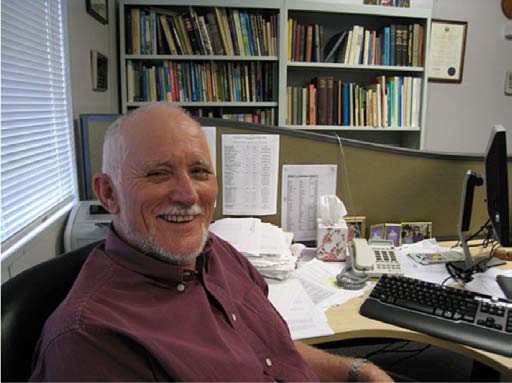 Phase 3 of my career saw me placing an increasing emphasis on undertaking research to inform public policy. While at Flinders U in the late 1970s I had become heavily involved in housing policy analysis. But following a move to Canberra (the national capital), where I became Director of the Australian Institute of Urban Studies (AIUS), my work became almost exclusively policy- oriented. At AIUS we conducted policy research on a variety of urban topics, including rental housing provision, foreign investment, urban real estate, and local economic development (the latter being undertaken in conjunction with Edward Blakely). The second part of my seven years in Canberra was spent as the Dean of the Management School at The Canberra College of Advanced Education, later to become the University of Canberra, where there was a strong teaching program in public sector management. Not surprisingly the administrative load was heavy, and my research was dependent more and more on collaborative effort with others taking much of the lead.
Phase 3 of my career saw me placing an increasing emphasis on undertaking research to inform public policy. While at Flinders U in the late 1970s I had become heavily involved in housing policy analysis. But following a move to Canberra (the national capital), where I became Director of the Australian Institute of Urban Studies (AIUS), my work became almost exclusively policy- oriented. At AIUS we conducted policy research on a variety of urban topics, including rental housing provision, foreign investment, urban real estate, and local economic development (the latter being undertaken in conjunction with Edward Blakely). The second part of my seven years in Canberra was spent as the Dean of the Management School at The Canberra College of Advanced Education, later to become the University of Canberra, where there was a strong teaching program in public sector management. Not surprisingly the administrative load was heavy, and my research was dependent more and more on collaborative effort with others taking much of the lead.
That focus on public policy was continued when in 1990–91, having completed my five-year stint as dean, I was enticed to Brisbane, Australia’s third largest metropolitan region by the then Lord Mayor of Brisbane City, Sallyanne Atkinson, to lead
The Brisbane Plan project, which developed a comprehensive strategy for the development, planning and management of the city for the next 20 years. That begun phase 4 of my career, which was predominately concerned with addressing urban planning issues with a focus on housing and economic transition and urban development. In 1991 I was appointed to the newly established Chair in Urban Studies at Queensland University of Technology (QUT) and began a research program monitoring the performance of the Brisbane-South East Queensland region.
Then in 1997 the Vice Chancellor of the University of Queensland (UQ) enticed me to relocate to UQ to a Chair in Geographical Sciences and Planning, where I had the role of providing leadership in developing a higher profile for urban and regional research in the university. Thus began phase 5 of my career. A new node of AHURI was also established at UQ. While there was a continuing focus on urban research, I also began a substantial effort to develop a much more explicit focus on regional economic development and especially on measuring and modelling endogenous regional performance. That involved collaboration with Roger Stough and Patricio Aroca. That orientation also led to me being asked to join with Peter Nijkamp and Roger Stough to be part of the group organising the Tinbergen Institute workshops that bring together 20 to 25 senior and young scholars to give papers on a theme in regional development focusing in particular on aspects of innovation and entrepreneurship. Those workshops have produced a number of edited books and special issues of journals. This is an example of how regional scientists collaborate to organise highly productive small events in a collegial atmosphere.
At UQ we developed the Centre for Research into Sustainable Urban Futures, of which I was the director, which later became the Urban and Regional Analysis program in the newly established Institute for Social Science Research. The research conducted at UQ over the period from 1998 to 2010 involved teamwork. Most of that work involved multi-disciplinary teams and covered a range of urban and regional fields including: evaluating homelessness programs in Australia; investigating the operation and future of the retirement village industry in Australia; conducting surveys to model subjective quality of urban life; modelling urban and regional opportunity and vulnerability in Australia; and building a large scale urban model for the Brisbane-South East Queensland. We also had a focus on developing spatial decision support systems, an initiative that in fact dated back to the late 1990s with Alan Murray when he was a Research Fellow with me, first at QUT and then at UQ.
Phase 6 of my career also emerged while I was at UQ when in 2004 a group of social scientists from universities across Australia won a bid to establish one of the new Australian Research Council’s Research Networks. Thus, the AUC Research Network in Spatially Integrated Social Science (ARCRNSISS) was established and I became the convenor for the life of the Research Networks program for the five years from 2005 to 2009. ARCRNSISS was a consortium of 18 universities and two federal government agencies and had more than 500 individual participants, along with some international participation. Among many things, we also put almost 100 graduate students through an annual residential Summer School in Spatially Integrated Social Science Theory, methods and Applications. And we developed with additional ARC research infrastructure funding a Shared Research Resources with data from some federal agencies and researcher generated data sets incorporation an e-Research Facility for Socio-Spatial Analysis and Modelling.
I was retiring at the beginning of 2011 when the University of Melbourne asked me to be the Director of the newly established Australian Urban Research Infrastructure Network (AUTRIN), a $20 million federal government funded project to develop an e-Infrastructure for facilitation access to diverse distributed data sets, data integration, and data interrogation through the provision of on-line e-research spatial, statistical and visualisation tools to enhance research capability for urban and built environment researchers in Australia.
Looking back over my career I have been privileged to have been a university teacher and researcher during an era of great change. Especially in Australia, the period from the 1960s to the 1980 was really a time of rapid development of the university system.
University life was highly collegial and it was really a lot of fun being part of it. I think the managerialism that has taken over universities to a significant degree since is a shame as the academy seems to have lost influence and certainly control of many of the important aspects of universities. Now it’s all about key performance indicators, frequent restructuring, and often the loss of discipline identity. The collegiality of regional science is more and more a welcome heaven to escape from all of that.
If I had a message for younger up-and- coming regional scientists it would be to take every opportunity that RSAI offers for developing an international network that leads to collaborative research.
RSAI is a unique institution to which many of the finest scholars in the world belong and they are very collegial and open to assisting younger scholars.
RSAI can literally open up the world for you. Embrace it; you won’t be disappointed; it will be richly rewarding as well as being a lot of fun.
(Published on RSAI Newsletter 2013 May)
Arthur Getis
Place and Time: The Right Place at the Right Time
While I was an M.S. student at Penn State in 1956, I saw a booklet published by the Association of American Geographers which gave the names of dissertations written by students in U.S. and Canadian university Ph.D. programs. Just a few departments caught my attention as places where my interests might lie. Allan Rodgers, a professor at Penn State and an inspiring teacher, encouraged me to seek a challenging research environment. After spending five years at Penn State happily working on bachelor’s and master’s degrees, I decided on the University of Washington. At Washington, my fellow grad students included Brian Berry, John Nystuen, Bill Bunge, Michael Dacey, Waldo Tobler, Richard Morrill, and Duane Marble. My professors were William Garrison, Edward Ullman, Arnold Zellner, Morgan Thomas, and Marion Marts. What a group! No need to seek stimulation – it was there every day. Important questions having to do with central place theory, city growth, transportation, trade, and retail location were argued and discussed. Donald Hudson, the chair at UW, opened the xerox copier room to grad students so that they could circulate their ideas. The environment was electric. Garrison, in his gentle way, ruled over this surfeit of intellectual curiosity. The underlying theme was that geography, as a discipline, was moribund, simple-minded, and useless, and if it was to survive as an intellectually respectable field it would have to become scientific. We spouted theories, tested hypotheses, copied techniques from the quantitative economists and, in general, set out to remake the discipline. Of course, there was resistance, not only at Washington, but among the field’s leadership at such places as the Universities of Wisconsin and Syracuse. This only increased our resolve, but unfortunately, some of the main journals rejected our papers on the grounds that they were too quantitative. When the University of Chicago’s department hired Brian Berry, it was like the breakthrough that opened the door to others of the Washingtonians. Before long, Northwestern, Michigan, Michigan State, and Pennsylvania, where Walter Isard was laying the groundwork for the new field of regional science, had young Washington Ph.D.s on their faculties.
Fortunately for me, I met my wife to be, Judy Marckwardt, at Washington. As an undergrad at the University of Michigan she had asked John Nystuen, who was a faculty member at UM, where she might do graduate work. He enthusiastically described Washington to her. She specialized in cartography under the tutelage of Professor John Sherman, a well-known cartographer sympathetic to the Garrison-led school. Instead of taking an NDEA fellowship to Princeton to study historical cartography, she decided to go with me. We were married in Ann Arbor, her hometown, where her father was an exceptional scholar in the English/Germanic languages and literature. I mention this simply because our household, inspired by Al Marckwardt at Michigan, for us first at Michigan State then at Rutgers became an academic cauldron where Judy and eventually our three children spent most of their time devoted to their studies. Judy was employed by Educational Testing Service of Princeton and eventually our girls became students at the University of Illinois’ experimental school, Uni High. Hilary, my oldest child, while a high school student in Illinois, became a Presidential scholar.
While I was at Michigan State, Bill Bunge at Wayne State, Waldo Tobler and John Nystuen at Michigan, and Don Blome and I formed what we called the Michigan Inter-university Consortium for Mathematical Geography (MICMAG).
John developed a working paper series that added to and continued similar types of series established at Washington, Northwestern, Iowa, and Ohio State. In this atmosphere, deepening knowledge of Christaller, Lösch, Isard’s regional science, and the new ideas emanating from Harold McCarty’s Iowa school were discussed.
Michael Dacey managed to have influential quantitative papers published in the journals of Economic Geography and the Annals of the AAG, finally establishing quantitative geography as a mainstream sub-discipline of geography. Together with others, I taught modeling and probability theory at Northwestern University Summer Institutes. Our students were mainly faculty from around the country and world who wanted to learn of the new techniques in geography.
The revolutionary spirit felt strongly by the Washingtonians had spread to England. Peter Haggett, a Cambridge Ph.D. and a friend of Brian Berry, was hired at Bristol University, where I visited in 1966–67. He, with Richard Chorley of Cambridge, became the “terrible twins” of the new geography in Britain. Among the new geography “scientists” at Bristol were David Harvey, Michael Chisholm, Allan Frey, Barry Garner, Andrew Cliff, Roger Downs, and Barry Boots. A young Ph.D. from the London School of Economics, Keith Ord, had just arrived at Bristol in the economics department. Originally from the same town in Yorkshire as was Andy Cliff, these two got together to work on something called “spatial autocorrelation.” Although one result of their work was the creation of a new spatial autocorrelation statistic, they named it not after themselves (which I think they should have) but for the statistician who laid the groundwork for it, P.A.P. Moran. They developed the rationale for the statistic, created the formulation for its variance, recognized its nuanced difference when used for testing residuals from regression, and published all of this in a Pion monograph in 1973 to be expanded into a full volume with examples in 1981.
During these years I joined the young quantifiers testing central place theory, creating point pattern analytic routines, and trying to instill in my students a love for the analytic side of geography. Some of this work was with Barry Boots who, after Les Curry died and Yorgos Papageorgiou retired, went on to become the leading quantitative geographer in Canada. Barry and I had a book on pattern analysis published by Cambridge University Press. As a graduate committee member in those early years, I advised, among others, Boots, Kingsley Haynes, Marc Armstrong, and Peter Muller.
Judy and I realized that to finish the formal education of our children we would have to enhance my salary. We wrote a textbook (with Jerome D. Fellmann, a colleague at Illinois) called Introduction to Geography, which is now in its 13th edition. We were then able to send our daughters to the colleges they adored: Hilary to Harvard, Vicky to Oberlin, and Annie to UC Santa Barbara.
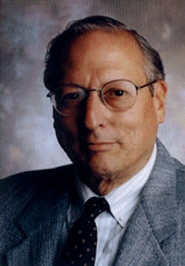 In the 1980s, except for the influence of the new technologies used in GIS, geography began to return to its original non-scientific state. Many of the early geography quantifiers felt the decline of scientific geography and sought the stimulation emanating from the field of regional science. I spent the Spring Semester of 1970 with Walter Isard at his Regional Research Institute at Harvard. I found the meetings of the Regional Science Association exciting and stimulating. One day, after many tries at developing the variances for something that became local statistics, I got in touch with Keith Ord and asked if he might want to give it a go. At that time, in the 1980s, Keith had left England for a position at Penn State.
In the 1980s, except for the influence of the new technologies used in GIS, geography began to return to its original non-scientific state. Many of the early geography quantifiers felt the decline of scientific geography and sought the stimulation emanating from the field of regional science. I spent the Spring Semester of 1970 with Walter Isard at his Regional Research Institute at Harvard. I found the meetings of the Regional Science Association exciting and stimulating. One day, after many tries at developing the variances for something that became local statistics, I got in touch with Keith Ord and asked if he might want to give it a go. At that time, in the 1980s, Keith had left England for a position at Penn State.
We developed a smooth working relationship. He was able to come up with the required proofs. I was then at the University of Illinois with Geoff Hewings and a host of other outstanding scholars. Keith and I developed something called the Getis-Ord G statistics which we published in Geographical Analysis. Soon after, Luc Anselin, took the global statistics, Moran’s I and Geary’s c, and created a family of local spatial autocorrelation statistics called LISA (Local Indicators of Spatial Association). These events, the creation of G statistics and LISA, triggered new research on the local characteristics of a myriad of georeferenced variables. But, perhaps most significantly, these statistics became an arm of spatial modeling, pattern analysis, and the all-important tests needed for residuals from regressions of various kinds. They have given rise to cluster determination, spatial filtering, and tests on many aspects of spatial autoregressive models.
In the mid-1980s, I took a sabbatical from Illinois to UC Santa Barbara, mainly to interact with Waldo Tobler. Fortunately for me, Luc Anselin had recently arrived in the geography department there from Ohio State’s urban planning department. Luc’s work with spatial autocorrelation further stimulated me. Luc was finishing for publication his book Spatial Econometrics: Methods and Models. I had a chance to review it. The book easily can be used as a text on spatial modeling. It has gone on to become the most heavily cited book in the field of spatial econometrics, and it motivated me to consider the structure of spatial weights matrices and a host of other spatial concepts.
Unknown to me in the late 1980s was that San Diego State University had applied for a Ph.D. program in geography that would emphasize the scientific aspects of the field. Rules of separation between the University of California (UC) and the California State Universities (SDSU is a member of CSU), required SDSU to seek a cooperating program in the UC system. Ernst Griffin, chair at SDSU, asked UCSB to be their partner in the development of a joint Ph.D. program. David Simonett at UCSB agreed. I left Illinois to take on the directorship of that program. It seems that my association with both UCSB and a one semester visiting professorship at SDSU helped make the spatial transition relatively easy. Not long after, in the early nineties, I moved into the Stephen and Mary Birch Endowed Chair of Geographical Studies at SDSU, and Douglas Stow took over the directorship of the program. It was at that time, in the early 1990s, that the Getis-Ord statistic was published in Geographical Analysis. In the meantime, I worked on the concept of spatial filtering using both G statistics and the notion that with georeferenced data it was possible in a variable to separate that which was due to spatial autocorrelation from that which is not due to spatial autocorrelation. This notion was called spatial filtering. In addition, Keith and I continued our collaboration developing an O statistic that tested for local spatial autocorrelation in the face of global spatial autocorrelation and more recently we have created an H statistic that tests for spatial heteroscedasticity.
Throughout the 1990s I became deeply involved in the adaptation of GIS for spatial analysis. My Ph.D. student, Lauren Scott, now of ESRI, has done much to popularize spatial statistics in ESRI analytical products. Another one of my Ph.D. students, Jared Aldstadt and I worked on using the concept of spatial autocorrelation to find spatial clusters.
We arrived at something called AMOEBA (A Multi- Directional Optimum Ecotope-based Algorithm) which efficiently finds statistically significant, irregularly-shaped clusters in mapped patterns of independent and dependent variables. Concomitantly, in the early 1990s, under the leadership of Manfred Fischer of Vienna, three us, Manfred, Bill Williams of Oxford and I launched a new journal, Geographical Systems (which later became the Journal of Geographical Systems). The journal emphasizes theoretical and empirical contributions to spatial analysis. It remains a strong, high-level journal nearly 20 years after its birth.
It finally struck me that if this work were to be situated in applied fields I would have to become involved with groups studying such things as the spatial distributions of crime and disease. At first I worked in crime analysis and then when Amy Morrison, an epidemiologist now at UCDavis, got in touch with me, my focus became infectious diseases, and in particular dengue fever. This work took me to Puerto Rico, Peru, and Thailand. Much of our statistical work is aimed at finding ways to control the spread of the disease. My role has been to identify any statistically significant spatial patterns of disease transmission. This work continues but has been expanded to the study of the environmental factors responsible for varying levels of women’s health in Accra, Ghana.
Throughout my academic life, I took every opportunity to spread the word of the importance of spatial analysis.
 Among other venues in which I instructed were summer institutes. For a number of years in the early 2000s, I worked with Mike Goodchild and Don Janelle teaching graduate students and faculty from around the world about spatial analysis. I note with pleasure that many of these young scholars have gone on to become fine faculty members in prestigious institutions.
Among other venues in which I instructed were summer institutes. For a number of years in the early 2000s, I worked with Mike Goodchild and Don Janelle teaching graduate students and faculty from around the world about spatial analysis. I note with pleasure that many of these young scholars have gone on to become fine faculty members in prestigious institutions.
Along the way, I had come to a number of crossroads. Especially when I found questions difficult to answer, I asked myself: Should I continue in this field of spatial analysis or seek administrative responsibilities or work in less challenging occupations? At Illinois, I gave the administrative route a try only to become frustrated with the politics of the university. My colleagues in regional science made it easy for me to come “home.” Fortunately for me because I happened to be in the right place at the right time, the challenges of spatial analysis became for me what may be called routine activity, activity that promoted intellectual stimulation and curiosity and brought me into contact with truly outstanding scholars and practitioners.
(Published on RSAI Newsletter 2012 November)
Sir Alan Wilson
My academic origins were far removed from regional science. I graduated in Mathematics and I wanted to work as a mathematician. I had a summer job as an undergraduate in the (then new) Rutherford Lab at Harwell in the UK and this led to a full-time post when I left Cambridge. I was, in civil service terms, a ‘Scientific Officer’ which I was very pleased about because I wanted to be a ‘scientist’. I even put that as my profession on my new passport. It was interesting. I had to write a very large computer programme for the analysis of bubble chamber events in experiments at CERN (which also gave me the opportunity to spend some time in Geneva). With later hindsight, it was a very good initial training in what was then front-line computer science. But within a couple of years, I began to tire of the highly competitive nature of elementary particle physics and I also wanted to work in a field where I could be more socially useful but still be a mathematician. So I started applying for jobs in the social sciences in universities: I still wanted to be a maths- based researcher. All the following steps in my career were serendipitous – pieces of good luck.
It didn’t start well. I must have applied for 30 or 40 jobs and had no response at all. To do something different, sometime in 1962, I joined the UK Labour Party. I lived in Summertown in North Oxford, a prosperous part of the city, and there were very few members. Within months, I had taken on the role of Ward Secretary. We selected our candidates for the May 1963 local elections but around February, they left Oxford and it then turned out that the rule book said that the Chairman and Secretary of the Ward would be the candidates, so in May, I found myself the Labour candidate for Summertown. I duly came bottom of the poll. But I enjoyed it and in the next year, I managed to get myself selected for East Ward – which had not had a Labour Councillor since 1945 but seemed just winnable in the tide that was then running. I was elected by a majority of 4 after four recounts. That led me into another kind of substantive experience – three years on Oxford City Council.
And then a second piece of luck. I was introduced by an old school friend to a small group of economists in the Institute of Economics and Statistics in Oxford who had a research grant from the then Ministry of Transport in cost- benefit analysis. In those days – it seems strange now – social science was largely non-quantitative and they had a very quantitative problem – needing a computer model of transport flows in cities. We did a deal: that I would do all their maths and computing and they would teach me economics.
So I changed fields by a kind of apprenticeship. It was a terrific time. I toured the United States – where all the urban modellers were – with Christopher Foster and Michael Beesley and we met people like Britton Harris (the Penn State Study) and I. S ‘Jack’ Lowry (of ‘Model of Metropolis’ fame). It was through the people I met on this trip that I had my first introduction to regional science. Back in Oxford, I set about trying to build the model. The huge piece of luck was that I recognised that what the American engineers were doing in developing gravity models could be restated in a format that was more Boltzmann and statistical mechanics than Newton and gravity and this generalised the methodology. The serendipity in this case was that I recognised some terms in the engineers’ equations from my statistical mechanics lectures as a student. This led to ‘entropy-maximising models’. I was suddenly invited to give lots of lectures and seminars and people forgot that I had this rather odd academic background.
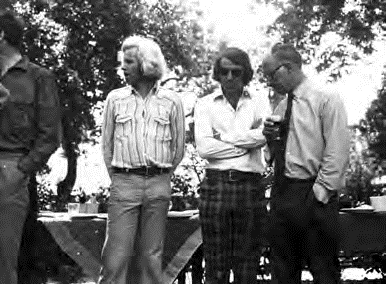
Alan Wilson (centre) with colleagues, early 1970s
It was a time of rapid job progression. I moved with Christopher Foster to the Ministry of Transport and set up something called the Mathematical Advisory Unit, which grew rapidly, with a model-building brief. (I had been given the title of Mathematical Adviser: it should have been ‘Economic Adviser’ but the civil service economists refused to accept me as such because I wasn’t a proper economist!). This was 1966–68 and then serendipity struck again. I gave a talk on transport models in the Civil Engineering Department in University College London and in the audience was Professor Henry Chilver. I left the seminar and started to walk down Gower Street, when he caught up with me and told me that he had just been appointed as Director of a new research centre – the Centre for Environmental Studies – and “would I like to be the Assistant Director?” My talk had, in effect, been a job interview – not the kind of thing that HR departments would allow now! And so I moved to CES and built a new team of modellers and worked on extending what I had learned about transport models to the bigger task of building a comprehensive urban model – something I have worked on ever since. In the late 60s, regional science began to develop seriously in the UK and Europe and I recall giving a paper at a conference in London – was it the first British Section meeting or was it a European meeting? What I do remember is my naivety on conference presentations. I had written a very long paper – far too long – titled ‘Towards a comprehensive urban model’. John Parry Lewis was chairing the session and to my horror, as I was around the end of my introduction to what I was planning to say, he told me I had about five minutes left! Somehow, I survived.
By the end of the 60s, quantitative social science was all the rage. Many jobs were created as universities sought to enter the field and I had three serious approaches: one in Geography at Leeds, one in Economics and one in Town Planning. I decided, wisely as it turned out, that Geography was a broad church and had a record in absorbing ‘outsiders’ and so I came to Leeds in October 1970 as Professor of Urban and Regional Geography. And so I became a geographer! There was a newspaper headline in one of the trade papers with words to the effect that “Leeds appoints Geography Professor with no qualifications in Geography!” However, again, the experience was terrific. I enjoyed teaching. It led to long term friendships and collaborations with a generation that is still in Leeds or at least academia: Martin Clarke, Graham Clarke, John Stillwell, Phil Rees, Adrian MacDonald, Christine Leigh, Martyn Senior, Huw Williams and many others – a long list. Some friendships have been maintained over the years with students I met through tutorial groups. We had large research grants and could build modelling teams. Geography, in the wider sense, did prove very welcoming and it was all – or at least mostly! – very congenial. Sometime in the early 1970s, I found myself as head of department and I also started taking an interest in some university issues.
But that decade was mainly about research and was very productive. In the mid-70s, I had three years as an Adjunct Professor in the Dept of Regional Science at Penn and I spent three weeks there each summer giving lectures. It was a period of close collaboration with Britton Harris that led to our 1978 paper on retail dynamics that has informed much of my work since. I attended many regional science conferences and odd remarks stick in my memory: Morton Schneider, for example, saying in a response to a presentation of mine, that I was the only person in the history of mathematics who used the letter ‘O’ as a variable!
By the end of the decade, there had been the oil crisis, cuts were in the air – déjà vu! – and research funding became harder to get. The next big step had its origins in a horse racing meeting on Boxing Day – was it 1983? – at a very cold Wetherby in Yorkshire UK. I was with Martin Clarke in one of the bars and we were watching – on the bar’s TV – Wayward Lad, trained near Leeds by Michael Dickinson, win the King George Stakes at Kempton.
Thoughts turned to our lack of research funding. It was at that moment, I think, that we thought we would investigate the possibility of commercial applications of our models. We first tried to ‘sell’ our ideas to various management consultants. We thought they could do the marketing for us. But no luck. So we had to go it alone. We constituted a two-person very part-time workforce. Our first job was finding the average length of garden paths in rural Oxfordshire for the Post Office! Our second was predicting the usage of a projected dry ski slope in Bradford, UK. We did the programming, we collected the data. We wrote the reports. We were once moved on by the management from outside Marks and Spencers store in Leeds when we were standing outside with clip boards trying to collect origin and destination data from customers! But then it suddenly was better. We had substantial contracts with W H Smith (a major UK high street chain) and Toyota (UK and Belgium) and we could start to employ people. It is a longer story that can’t be told here, but that is what grew into GMAP, with Martin Clarke as the Managing Director and driving its growth. At its peak, GMAP was employing 120 people (largely Leeds University geography students) and had a range of blue-chip clients. That was a kind of real applied geography and regional science that I was proud to be associated with.
Simultaneously in the 80s, I began to be involved in university management and I became ‘Chairman of the Board of Social and Economic Studies and Law’ – what in modern parlance would be a Dean. In 1989, I was invited to become Pro-Vice-Chancellor – at a time when there was only one. I left the Geography Department and, as it turned out, never to return. The then Vice-Chancellor became Chairman of the CVCP and had to spend a lot of time in London and so the PVC job was bigger than usual. In 1991, I found myself appointed as Vice-Chancellor and embarked on that role on 1 October in some trepidation. I was VC until 2004. It was challenging, exciting and demanding. It was, in Dickens’ phrase, ‘the best of times and the worst of times’: tremendously privileged, but also with a recurring list of very difficult, sometimes unpleasant, problems. But this is about geography and regional science: I somehow managed to keep my academic work going in snatches of time but the publication rate certainly fell.
I was Vice-Chancellor for almost 13 years and in 2004 I was scheduled to ‘retire’. This, however, seemed to be increasingly unattractive. Salvation came from an unlikely source: the Department for Education and Skills (DfES) in London. I was offered the job of Director-General for Higher Education and so I became a civil servant for almost three years with policy advising and management responsibilities for universities in England. Again, it was privileged and seriously interesting, working with Ministers, having a front row seat on the politics of the day. But I always knew I wanted to be an academic again, so after a brief sojourn in Cambridge, I returned to academic life at University College London as Professor of Urban and Regional Systems – and that was over four years ago. This has been another terrific experience. I work with Mike Batty, an old modelling friend and Andy Hudson-Smith in the Centre for Advanced Spatial Analysis and a group of young researchers and students. I run a course for graduate students based on a book of mine which was published in 2010 – Knowledge Power – url: www.routledge.com/9780415553117 – and a course on urban modelling, written up as The science of cities and regions published by Springer in January 2012 – search Springer.com for details. What has been very exciting is that my research field, developed into the realms of what is now called complexity science, has become a hot topic. So research grants flow again. This includes £2.5M for a five-year grant from EPSRC for a five-year project on global dynamics – now 18 months under way – see the CASA web site for recent working papers. This embraces migration, trade, security and development aid: big issues to which real geography and regional science can make a significant contribution. It funds half a dozen new research posts and five PhD studentships. The shopping list of research challenges is a long one and so ‘retirement’ seems, hopefully, a long way away!
(Published on RSAI Newsletter 2012 May)
About Us
The Regional Science Association International (RSAI), founded in 1954, is an international community of scholars interested in the regional impacts of national or global processes of economic and social change.

